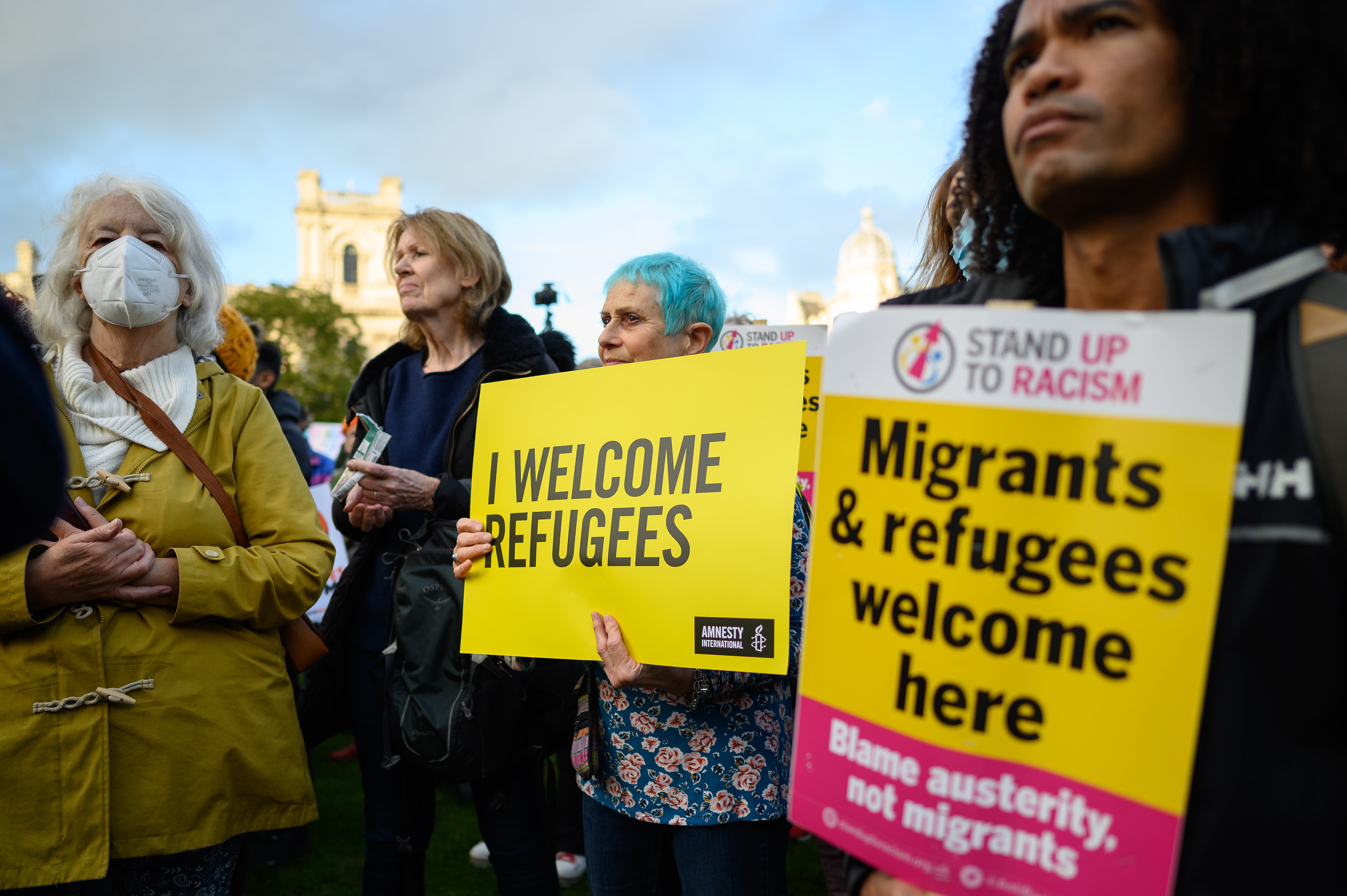It now feels like Priti Patel is telling me to go back where I came from
Millions of people of colour across the UK fear their British citizenship could be at risk with the introduction of the Nationality and Borders Bill, writes Furvah Shah


I have never felt British enough. I was born here, English is my first language and it’s the only place I have ever called home, but feelings of not quite belonging have persisted. Growing up as a Muslim woman of colour from a Pakistani background, I’ve always found my identity to be a source of contention. I know this feeling is shared by many people of colour growing up in the UK and when changes to the government’s Nationality and Borders Bill were recently announced, it is a feeling that intensified.
The Nationality and Borders Bill was introduced in July. It contains rulings around immigration, asylum, nationality and refugees. In light of an increased number of asylum seekers and refugees entering the UK, the bill aims to deter illegal entry into the country and remove those who, according to the government, have no right to be here.
However, the bill has faced intense criticism from members of parliament, human rights groups and charities, such as the UN and Amnesty International, who feel it is discriminatory and potentially harmful. A petition against the new clause in the bill has received over 280,000 signatures.
The new clause – clause 9 – has been the subject of intense backlash since it was announced last week, as the change will ease the requirements needed to remove someone’s citizenship, including no longer needing to notify them. This ruling will affect all those who are eligible for citizenship in another country, which according to the New Statesman, is 6 million people, or two out of five people of colour in Britain.
Many of those who were born, or have a parent or grandparent who was born, in another country are eligible for citizenship elsewhere. For myself, I am eligible for citizenship in Pakistan through my grandparents despite not visiting the country since I was a child and never calling it home.
A person’s citizenship can be deprived from them if it would be “conductive to public good” – according to the British Nationality Act 1981 – including in the interest of national security, if a person had been involved in serious crimes or other “unacceptable behaviours”.
Clause 9 of the Nationality and Borders Bill means citizenship can be deprived from someone without prior notice. Reasonings for doing this include if it isn’t practicable to notify a person; in the interest of national security; a relationship between the United Kingdom and another country; or otherwise in the public interest. For me, this is terrifying.
The thought that my British citizenship, and that of millions of others, could be revoked without notice furthers my feelings of not truly belonging in this country I call home. I’ve heard the phrase “go back to where you came from” many times before, but to effectively hear it from the UK government is particularly painful. It’s difficult to put into words.
While the government has attempted to clarify that depriving someone of citizenship without notice is only reserved for extreme cases, the very notion is extremely unsettling; the proposed reasonings feel far too vague.
Firstly, who defines whether depriving someone of citizenship is “conductive to public good” or not? And who says whether depriving them without notice is “reasonably practicable” or “in public interest”? Well, Home Secretary Priti Patel.
To keep up to speed with all the latest opinions and comment sign up to our free weekly Voices Dispatches newsletter by clicking here
Patel has faced intense backlash for the bill, which she proposed as part of her crackdown on illegal immigration. In her speech to parliament on the bill, she said: “Everyone who plays by the rules will encounter a new system that is fair but firm.” But I worry that the rules are not fair to the thousands of people who feel discriminated against and at risk.
It’s also interesting to note that the home secretary herself is among those who are at risk of having her citizenship removed due to her family’s Indian background. I doubt she would decide that would be in the public interest, though.
The bill is currently being debated in the House of Lords after it passed through the House of Commons, and it’s yet to be seen whether the intense backlash will affect the passing of clause 9. I hope it won’t pass. But I fear that irreparable damage has been done either way to the trust and wellbeing of the 6 million people in the country who face the potential impacts of the bill. To me, this doesn’t seem to be about safeguarding the country but rather defining who does and does not belong in it – and people of colour in the UK are getting the short end of the stick.






Join our commenting forum
Join thought-provoking conversations, follow other Independent readers and see their replies
Comments